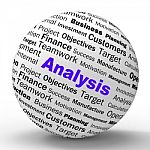 Should you be hiring candidates with big data skills?
Should you be hiring candidates with big data skills?
As big data becomes a big part of many businesses’ operations, there are more candidates out there who have gained big data skills either through their job, or by specializing in big data during their studies.
If you’re considering taking on candidates with big data skills, what can those skills do for your business?
Big Data and Business
Big data has a wide variety of uses for your business. Sometimes the difficulty is deciding what to focus on first.
You can use big data to analyze your customers’ behavior.
This could include anything from purchasing trends to how they interact with your website. You can gain insights into who these individuals are, where they are, what they want and how they interact with you.
You can use big data to track your business processes and finances.
From tracking the way sales ebb and flow throughout the year to analyzing data from different departments, big data can give you insights into the way your business works.
You can use big data to keep your social media game on top form.
From figuring out which posts are getting the most customer engagement, to finding out what customers are saying about you, big data gives you insights via social media.
Where to Find Your Big Data Candidates
So just where can you find your big data candidates?
There are two main ways:
Hiring a candidate who recently studied big data, or looking for someone with experience. Both have their advantages.
With more schools offering big data courses these days, you can find candidates who have been taught an in depth knowledge of big data.
As the article “Hiring Smart: The 5 Best Schools Cranking Out Big Data Job Candidates” says, big data students will have learned while training on real data sets, giving them the skills your business needs.
You can also hire candidates who already have experience in the field.
With more businesses making use of big data, so more professionals are learning big data skills and applying them in their roles.
Whether you hire a dedicated data scientist, or a skilled multi-tasker with big data smarts, experienced candidates will bring expertise to their role.
Big Data Can Be Applied In Many Roles
With so many uses for big data, there is the potential for you to make use of big data skills across departments.
Candidates with big data skills will bring an in-depth knowledge of how big data works, and how to make the most of it. Those skills can provide a real boost to your business; giving you candidates who can undertake in depth analysis and use the insights they gain to drive your business forward.
From analyzing data about your business processes, to streamlining your marketing efforts, candidates who can handle big data can do a lot for your business.
As well as hiring someone specifically for the role of data specialist, you will also benefit from looking for big data skills in any candidate who will be in a position to use data to gain insights.
There’s no doubt that big data is here to stay.
By hiring candidates who are confident handling big data, you will be providing your business with valuable skills that will benefit you in the long term.
Photo credit: BigStockPhoto.com
About the Author: Tristan Anwyn is an author who writes on a range of topics including social media, SEO that works, and how to make big data work for your business.



